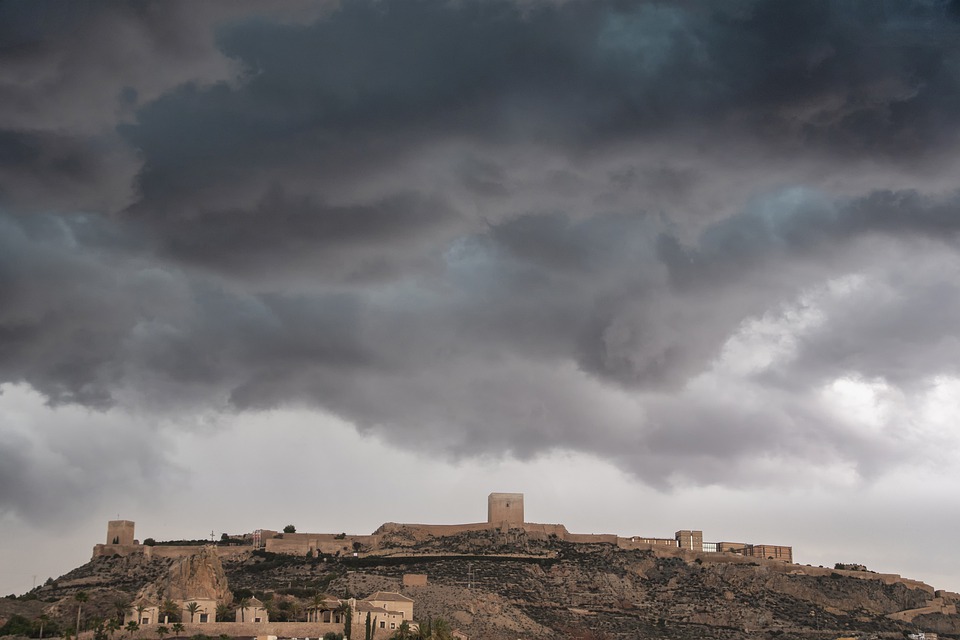The Link between Extreme Weather and Climate Change
Extreme weather events like hurricanes, droughts, and heatwaves have been becoming more frequent and intense in recent years, leading many scientists to believe that they are directly linked to climate change. Climate change refers to long-term changes in the Earth’s climate, driven by human activities like burning fossil fuels and deforestation. These activities release greenhouse gases into the atmosphere, trapping heat and causing the planet to warm up. As a result, we are seeing more extreme weather events that have devastating impacts on communities and ecosystems around the world.
Understanding the Science Behind Extreme Weather and Climate Change
One of the key ways in which climate change is fueling extreme weather events is through the warming of the Earth’s atmosphere and oceans. Warmer temperatures lead to more evaporation of water from oceans and land, which in turn increases the amount of moisture in the atmosphere. This extra moisture can fuel more intense rainfall events, leading to flooding and landslides. In addition, warmer oceans can fuel more powerful hurricanes and typhoons, as the warm waters provide the energy needed for these storms to strengthen.
Climate change is also causing shifts in atmospheric patterns, leading to changes in weather patterns around the world. For example, the jet stream – a fast-flowing band of air that influences weather systems – is becoming more erratic as the Arctic warms up faster than the rest of the planet. This can lead to prolonged periods of extreme heat or cold, as well as more intense storm systems. These changes in atmospheric patterns can have far-reaching impacts on agriculture, water resources, and infrastructure.
The Impact of Extreme Weather Events on Communities and Ecosystems
Extreme weather events have devastating impacts on communities and ecosystems around the world. For example, hurricanes and typhoons can cause widespread destruction, leading to loss of life, property damage, and displacement of people. In addition, prolonged droughts can lead to crop failures and food shortages, putting vulnerable populations at risk of hunger and malnutrition. Heatwaves can also have serious health impacts, causing heat-related illnesses and even death.
Extreme weather events also have significant impacts on ecosystems. For example, wildfires are becoming more frequent and intense in many parts of the world, leading to loss of biodiversity and destruction of habitat. Rising sea levels and more intense storms can also lead to coastal erosion and loss of coastal wetlands, which provide important habitat for marine life. These changes in ecosystems can have cascading impacts on food chains and biodiversity, leading to long-term damage to ecosystems and the services they provide to humans.
Taking Action to Address Climate Change and Extreme Weather
Addressing climate change is essential to reducing the frequency and intensity of extreme weather events. This will require a combination of mitigation measures to reduce greenhouse gas emissions and adaptation measures to prepare for the impacts of climate change. Mitigation measures can include transitioning to renewable energy sources, improving energy efficiency, and protecting forests and other carbon sinks. Adaptation measures can include building resilient infrastructure, developing early warning systems, and implementing sustainable land management practices.
Individuals can also take action to reduce their carbon footprint and help address climate change. This can include reducing energy consumption, using public transportation or biking instead of driving, and supporting policies that promote clean energy and environmental protection. By working together at the local, national, and international levels, we can address the root causes of climate change and build a more sustainable future for all.
The Role of Science in Understanding and Addressing Climate Change
Science plays a crucial role in understanding the link between extreme weather events and climate change, as well as in developing solutions to address the impacts of climate change. Scientists use sophisticated computer models to simulate the Earth’s climate system and predict how it will respond to changes in greenhouse gas emissions. These models help us understand the underlying mechanisms driving extreme weather events and how they are influenced by climate change.
In addition, scientists monitor key indicators of climate change, such as global temperatures, sea levels, and ice cover, to track how the Earth’s climate is changing over time. This monitoring allows us to detect trends and patterns in extreme weather events and assess their impacts on communities and ecosystems. By sharing this information with policymakers, scientists can help inform decisions on how to address climate change and reduce its impacts.
Conclusion
The link between extreme weather events and climate change is becoming increasingly clear, as scientists continue to study the impacts of human activities on the Earth’s climate system. Addressing climate change is essential to reducing the frequency and intensity of extreme weather events, as well as protecting communities and ecosystems from their devastating impacts. By taking action at the individual, local, and global levels, we can work together to build a more sustainable future for all.
